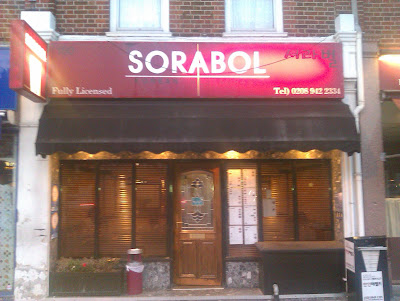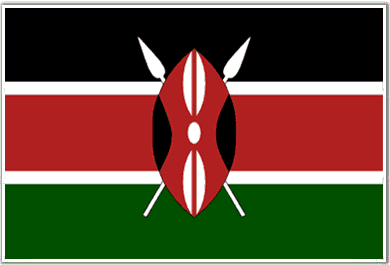
Restaurant: Sorobol
Location: New malden
By Boeing: 6239 miles
By Boris Bike: 15.3 miles
A non-descript, dreary district of South West London boasts a mystery more perplexing than the disappearance of Lord Lucan. Of all London’s leafy suburbs why have Koreans chosen New Malden, a post code so instantly forgettable that a postman thirty years on his route and born and bred in the area can’t distinguish one street from the next, as their home from home? Are we to believe that Seoul, an Olympic host no less, is equally as drab? That austere rectilinear grocery wholesalers are the gilded cathedrals of Korean culture? Surely not. So why have around 10,000 Koreans, representing around 20% of New Malden residents, settled in this sleepy, suburban town?
One story is that they followed in the footsteps of an ambassador in the 1950’s who lived in the neighbourhood. But that smacks of rum logic. Another, more plausible, explanation is that it was due to the proximity of Samsung’s, the Korean electronics giant, European headquarters nearby. But I didn’t hand in my notice on the news that Clarks the Cobblers had opened a store in greater Gwangju.

But whatever the reason the result is unquestioned. New Malden has been ceded. It is no longer crown territory. No jubilee bunting streams between its municipal lampposts. At the end of a highstreet thronged with Korean cafes and estate agents is perhaps the smartest of the dozen or so eastern eateries in the vicinity. Sorabol is low-lit and welcoming. Sat at a corner table the first thing I noticed was that it contained an oven. Or perhaps the oven had been rudely roofed with my table. Either way it suggested that this would be an unusual dining experience.
A quick perusal of the menu revealed the revelation of the oven for it featured The famous table-cooked Korean BBQ, Bulgogi. I ordered the pork with accompanying lettuce leaves and Pa Mocchim, spring onions with chilli powder and vinegar. The young waiter sporting a peerless Bigglesworth prep-school diction suggested I begin with a hot beef soup and Kimchi pancakes, a national staple consisting of vinegar doused cabbage lightly fried in batter.

I sat bolt upright staring at the small dish that had been served with my soup. I admit it, I was agog. Call me a starchy old traditionalist but I like my soup served with a wedge of bread or even, in braver moments, a garlic encrusted crouton. Slices of apple in mayonnaise was not what the doctor, or indeed I, had ordered. ‘On the house’ the waiter had said when he served them. Had I offended him in a previous life? On a parallel plate balanced nine beans. They were lovely.

My spirits were lifted by the Kimchi pancakes that were filling and fragrant. As I tore a corner and dipped it in a plum sauce the oven which I sat abreast was lit and a silver disc replaced with what looked like an upturned metal dustbin lid. A plate of hearty cuts of bacon was laid before me and a diminutive waitress, clearly not trusting my ability to turn meat, began demonstrating that very skill. In a group of friends, with different choices of meat, I can imagine that this would be a very sociable activity. It certainly gives the chefs a breather and it brings aromas and drama to the dining experience. Mere minutes later the bacon was browned and sizzling.
Using the lettuce leaf as a gluten free bap substitute I placed several pieces in its centre before adding a prong full of Po Moochim, a drizzle of sesame oil and a blob of tangy fermented bean paste. I then ate it in the way that a football fan disgruntled by the half time score devours a cheeseburger. In spite of my reservations it was very moreish and I set about making more. In truth the flavours would have worked better with beef. Once again my salivating obsession with pork belly had dictated my eating experience.
Many would argue that the whole point of visiting a restaurant is that you are spared the chore of cooking but I have to say I am definitely a convert. I’ve enjoyed many a Fondu in my time and this Korean variant fulfils that same primeval urge to skewer raw flesh on a sharp implement and burn it. In a large group you could be braver with the banchan (sides), introducing eel to the party along with noodles, rice and marinated crabs.
I can imagine may Korean diners fulfil the thesaurus definition of a feast. But I’m not convinced the ‘oven as your table’ concept would work with English cuisine. A Roast Silverside would take an absolute age and one slip with a toad and the hole and a fire engine would need to be called. But perhaps that is the thrill of the exotic, that it transcends the limitations of the routine.
Korean restaurants, even beyond New Malden, are one of the fastest growing cuisines in London. They offer a variation on the tried and tested Thai and the commonplace Chinese, while retaining that eastern promise that for many distinguishes a special night out from an average night in. And yes, they do eat dogs, though most give the chef the honour. But those fearing for their dogs safety in this corner of South London can rest at ease, for Koreans only eat a particular type of dog, the Nureongi, which they breed for purpose. Which is akin to breeding a particular type of Badger for a Steeplechase. Which is mad. But not as mad as serving apple in mayonnaise.





